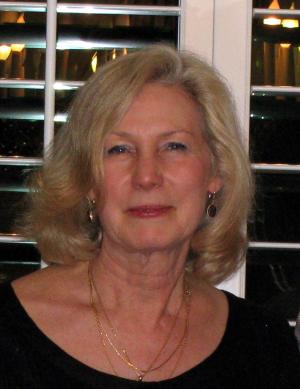The Department of Spanish and Portuguese is delighted to announce that thanks to a generous gift from Roberta Lee Johnson (BA and MA, UC Davis; professor emerita, University of Kansas), the UC Iberian Studies Consortium has been formed, and will be headquartered at UC Davis.
The UC Iberian Studies Consortium serves the University of California as a whole, including UCSB. The Consortium promotes the study of the languages, literatures, and cultures of the Iberian Peninsula, including Spanish, Portuguese, Catalan, Galician, Euskara/Basque, and Asturian. It was founded in 2011 by Robert Patrick Newcomb (UC Davis) as the UC Comparative Iberian Studies Working Group and received seed funding from the UC Humanities Research Institute. It has hosted nine meetings at six UC campuses, including UC Davis. Newcomb and Silvia Bermúdez (UC Santa Barbara) have co-directed the group since its founding.
Robert Patrick Newcomb will serve as the Consortium’s inaugural Director, with Silvia Bermúdez serving as Co-Director. The Advisory Board will consist of Eloi Grasset (UC Santa Barbara), Covadonga Lamar Prieto (UC Riverside), and Santiago Morales-Rivera (UC Irvine). Ana Peluffo (Chair, UC Davis Department of Spanish and Portuguese) and Ryan Advincula (Assistant Director of Development, UC Davis College of Letters and Science) will work with the officers to manage and build upon the Consortium’s endowment.
The Consortium will hold a meeting at UC Davis in May 2024 to honor the gift, career, and academic interests of Roberta Johnson, who has been a devoted member of the group since its inception.
Roberta Lee Johnson: UC Davis alumna and Pioneering Scholar of Spanish Literature
Roberta Lee Johnson is a distinguished scholar of modern and contemporary Spanish literature and a pioneering specialist in Spanish women’s literature.
She grew up on a ranch in California’s Central Valley, and attended UC Davis (1959-65), where she received her BA and MA in Spanish, and developed a life-long love of Spanish literature and culture.
Johnson then received her PhD in Spanish from the University of California, Los Angeles, before
embarking on a career that has included faculty positions at Wartburg College, Kansas State University, Scripps College, and the University of Kansas, where she served as Chair of the Department of Spanish and Portuguese. Johnson has also held visiting appointments at UC Irvine and UCLA.
Johnson is the author of several titles, including Crossfire: Philosophy and the Novel in Spain 1900-1936 (1993) and Gender and Nation in the Spanish Modernist Novel (2003). She is also co-editor of Antología del pensamiento feminista español 1726-2011 (with Maite Zubiaurre, 2012) and A New History of Iberian Feminisms (with Silvia Bermúdez, 2018). She has received fellowships from the National Endowment for the Humanities, the Guggenheim Foundation, and the Graves Foundation, and in 2007 she received the Encomienda de Isabel la Católica from King Juan Carlos of Spain.
Reflecting on her early years, Johnson notes the challenges she faced as a woman with professional aspirations: “When I was getting ready to graduate from high school, my mother wanted me to get my teaching certificate ‘just in case’ my future husband (who she assumed I would meet in college) died, and I would have no other option but to support myself. This is how my mother convinced my father to let me enroll in the University of California, Davis.” As a UC Davis undergraduate, Johnson studied Spanish language and literature with professors from our department, including Wayne Bowen, Donald Castanien, and Daniel Keller, and developed a secondary specialization in Latin American history.
In 1964, Johnson became one of the first two students in our department’s MA program in Spanish. The MA program was initially headed by Concha Zardoya (1914-2004), a Chilean-Spanish poet and critic and the first woman to work as a tenured professor of Spanish at UC Davis. About Zardoya, Johnson has written: “At the time I didn’t appreciate how important it was for me to study with a woman, and especially, with a woman who was as intelligent and creative as Concha Zardoya. I hadn’t taken any undergraduate courses with woman professors, which at the time didn’t seem strange to me at all. Those were the times. There were lots of woman undergraduates, but the professors were all men. It was a great privilege for me to take classes with Zardoya, and she became a model for me. Among other things, she taught me that women could be college professors.”
June 16, 2023 - 9:49am

